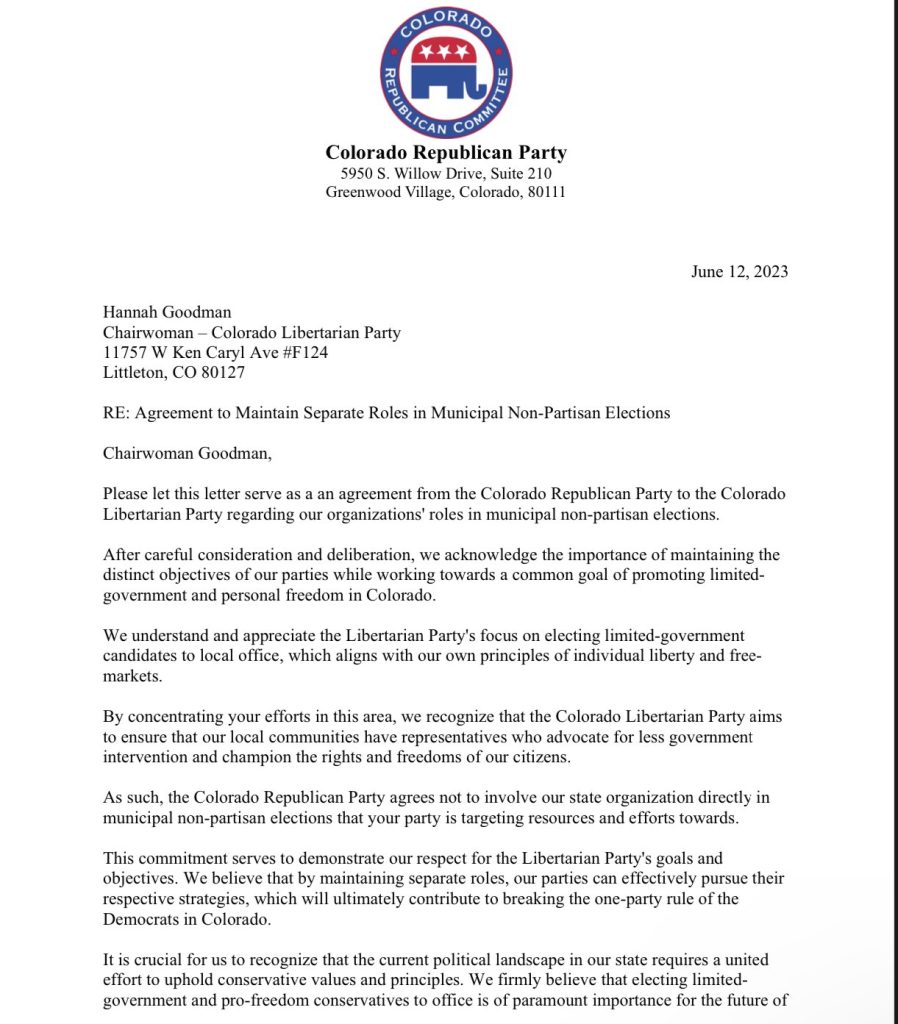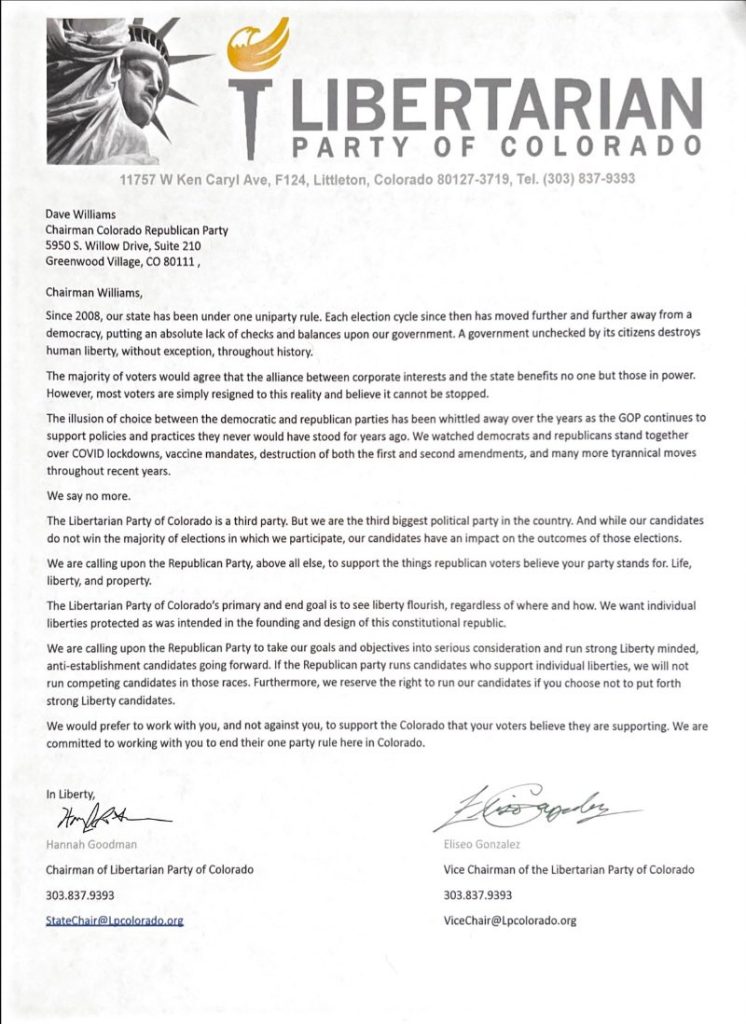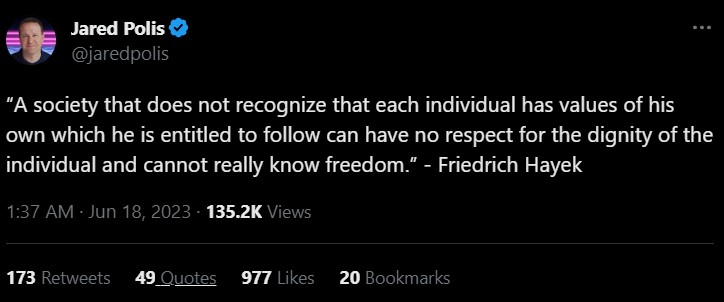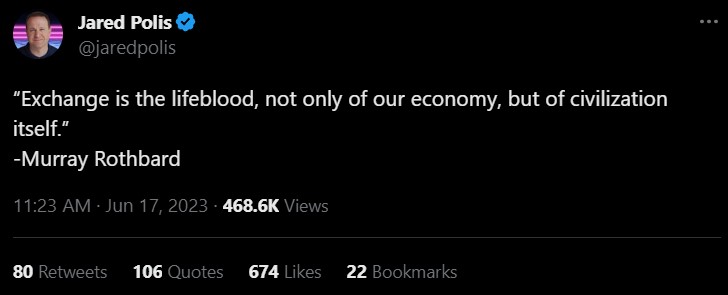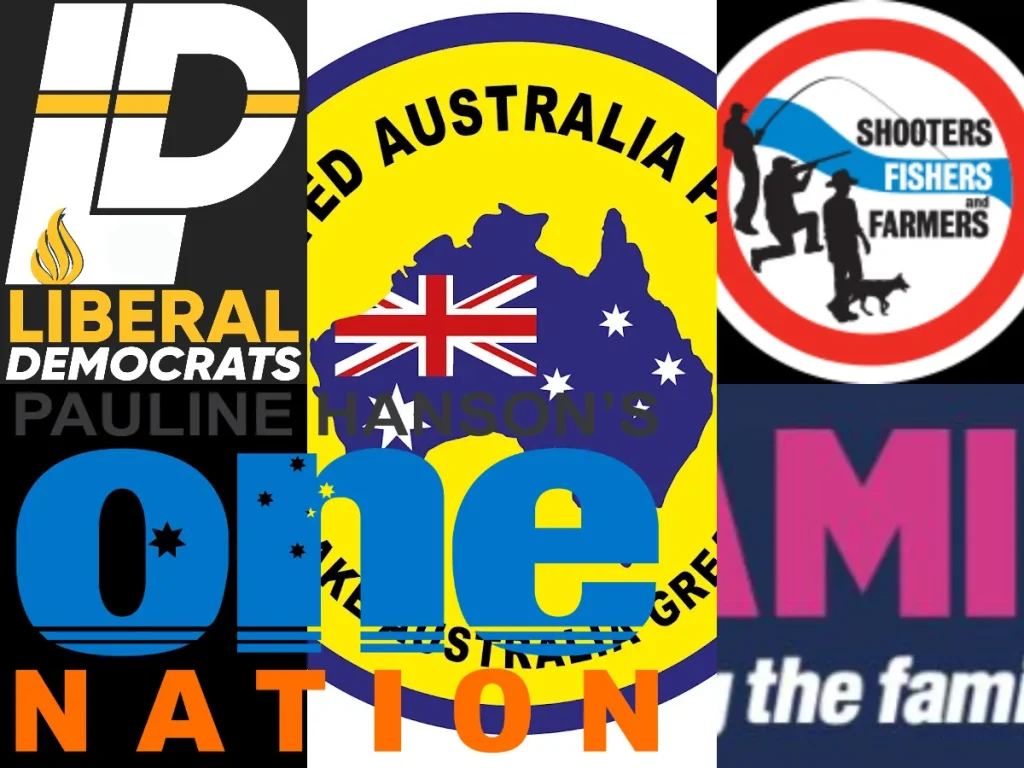This week the US Federal Court handed-down its decision in the United States of America et al v Google LLC, in which the US Government challenged Google for using exclusionary monopolistic behaviour to deny its rivals access to distribution channels provided by Apple and Samsung. Google lost but may appeal.
Formidable, straight-shooting American libertarian, Hannah Cox, raised some interesting points in her Newsweek opinion piece Google Is No Monopoly. It’s Widely Used Because It’s The Best about competition law – what Americans call anti-trust law.
This is the area of law which deals with maintaining competition by determining whether companies wield monopolistic-like behaviour to inhibit competition, as well as protecting consumers.
Knowing whether a policy is inside or outside the world of libertarianism can be a close fought thing at the best of times. As Justin Amash, a prominent American libertarian who just lost his bid for the US Senate in Michigan, said “Libertarians spend so much time arguing over who is the purest libertarian that they forget to work together to advance liberty.”
But define the very edges of libertarianism we must, and competition law seemed ready for a battle.
Hannah took the corporation’s side of the debate, as the purist, to argue ‘market forces should maintain competition not government.’ Sounds libertarian, right?
But nagging doubt afflicted me. So, this article is me nailing my colours to the mast in countering “sometimes, rarely, market forces create monopolies which bring competition to a halt. When this happens, government must act as referee and deal with the monopoly to reinstate the free market.”
So here are her arguments and my rebuttals.
ARGUMENT #1 “MONOPOLY MEANS ONE”
Hannah challenges any assertion that Google is a monopoly. She says, “In fact, there are over 30 other search engines in the world that are dedicated solely to search functionality, including Yahoo!, Bing and Duck, Duck, Go.” If there are many search engines, even just two, Google can’t be a monopoly. The ‘mono’ in monopoly means one.
The mistake some libertarians make is to argue big government is the only potential agent for coercion in society.
REBUTTAL #1 “MONOPOLY IS CONTEXTUAL”
My understanding of the US Sherman Act is that it focuses on “monopoly-like behaviour”, not whether a company is strictly speaking a monopoly. So, whether Google is a monopoly is irrelevant.
Second, “monopoly” is defined in OxfordReference.com as “The situation where one company controls all or a substantial majority of a market.”
That is, substantial majority, not 100%.
In the US search engine market, Google has 88.14% of annual searches. In the court case, they said 90%. Bing is #2 with 6.79%. Yahoo! And DuckDuckGo come in at #3 and #4 with 2.63% and 2.55% respectively.
All other players have less than 1% including Baidu, a Chinese search engine, and Yandex, a Russian rival.
88.14% is clearly a “substantial majority of the market.
So my rebuttal is that a monopoly doesn’t have to be present, just monopoly-like behaviour.
If Google had 99.99999% of the market and there was one other player at 0.00001%, Cox would continue to argue Google is not a monopoly. That makes no sense.
ARGUMENT #2 “EXCLUSIVE ACCESS IS NOT MONOPOLISTIC”
Hannah then argues that Google has just provided more convenience than its rivals, or better access, implying distribution channels aren’t a seismic advantage. She’s essentially saying securing exclusive access is not monopolistic.
REBUTTAL #2 “EXCLUSIVE ACCESS IS MONOPOLISTIC”
When you break down what she’s saying, it’s that Google is just more convenient to access. But the converse must also be true: that Google’s competitors Yahoo!, Bing and DuckDuckGo are more inconvenient to access. In commerce, convenience matters. There are thousands of markets where convenience is the deciding factor in commercial success.
Imagine two identical retailers, one with parking and one without. The one with parking will outcompete the other because customers have more access to it. Or think of marketing channel access like a waterpipe: if there are two pipes into town, one owned by Apple and the other Samsung, and Google pumps its water through those two pipes, Hannah would have you believe that it is no big deal for DuckDuckGo water to be accessed by walking 10 km and carrying it in a bucket on your head.
Convenience matters. Access matters. Securing exclusive access at the expense of your rivals is monopolistic.
ARGUMENT #3 “DISTRIBUTION DEAL IS EVIDENCE OF SUPERIOR NEGOTIATION AND INTELLIGENCE”
Then Cox continues with the following: “Being smart enough to negotiate such deals simply makes Google better at its job.”
REBUTTAL #3 “DISTRIBUTION DEAL IS EVIDENCE OF MORE MONEY”
Maybe.
Is this Hannah inadvertently arguing that Google has a monopoly of high IQ negotiators?
Putting that aside, what Hannah omits from her article is that Google had to pay Apple and Samsung billions for the rights to those distribution channels. So, Google spent billions to deny their competitors access. These billions are war-chests their rivals don’t have due to exclusive dealing.
There’s a timeline of cause and effect to consider in the industry. Here’s a list of search engines and the year they were founded:
1994 WebCrawler
1994 Lycos
1994 Infoseek
1995 Yahoo! with AltaVista
1998 Google
2008 DuckDuckGo
2009 Bing
So Google joined the market after Yahoo!.
By 2002, it overtook Yahoo! for searches per annum and has been in the #1 position since.
Perhaps its search algorithms were superior. No problems there; that’s competition.
But since then Google has locked in agreements with Apple that Google be the default search engine on its devices.
When Samsung took up Android, Google repeated the process.
Here are the real figures. Google pays Apple between $8 billion and $12 billion annually to remain the default search engine on Apple devices, including the iPhone, iPad, and Mac.
Google reportedly is paying Samsung $8 billion over 4 years for similar access.
Let’s call that $20 billion in total, and recurring over various intervals.
Can Yahoo!, Bing and DuckDuckGo afford this?
Yahoo! is owned by Verizon which, as at Q2 FY2024, had $17.2 billion in cash or cash equivalents.
Bing is owned by Microsoft which, as at Q3 FY2024, had $130 billion in cash or cash equivalents.
DuckDuckGo is a private company with speculated cash of $100 million in 2021.
Therefore, Google has effectively shut-out Yahoo! and DuckDuckGo, the #2 and #4 in the market. Exclusionary actions like this emphasise the monopolistic nature of Google’s claim in search.
ARGUMENT #4 “NO HARM CAUSED BY DOMINANT POSITION”
Cox further argues that “The company has in no way harmed consumers, defrauded anyone, or even acted in an unfair way toward their competition.”
REBUTTAL #4 “HARM CAUSED BY DOMINANT POSITION”
I’m surprised any libertarian would argue Big Tech has harmed no-one.
I’ve just been through how Google uses exclusionary channel agreements to shut-out Yahoo! and DuckDuckGo. This seems unfair at first instance.
Does Google defraud or misinform? Yes.
Douglas Murray famously challenged John Anderson to type “white couple” into Google and see the results. Google have since changed the bias in their algorithm so it’s not so obvious, but the following results demonstrate the bias still lingers.
As at 7 August 2024, when you query Google images for “black heterosexual couple” and review the first 20 results, here’s what you get:
- Black heterosexual couple: 17
- Black homosexual couple: 2
- Mixed heterosexual couple: 1
And when you query Google images for “white heterosexual couple” and review the first 20 results, here’s what you get:
- White heterosexual couple: 13
- Why Google Images searches aren’t racist: 2
- Mixed heterosexual couple: 5
Santa Clara University reported that typing “Asian girls” resulted in Google’s algorithm yielding pornographic and highly sexualised results.
In 2018, NBC reported that typing “black girls” would yield similar results.
Much has been reported about political bias as well.
US Government challenged Google for using exclusionary monopolistic behaviour to deny its rivals access
Is that harm, or misinformation or fraud?
ARGUMENT #5 “BIG ONLY MEANS POPULARITY”
Hannah then backgrounds us about the ‘consumer welfare standard’, Robert Bork and political factional differences between Republicans and Democrats.
She goes on to criticise those who think ‘big is bad’ and that “Becoming big merely means it is popular and offers a product or service consumers quite like.”
REBUTTAL #5 “BIG CAN MEAN POPULARITY WITH COERCION TO FOLLOW”
The mistake some libertarians make is to argue big government is the only potential agent for coercion in society. I’d argue, unlike Hannah, to start with any big organisation. Big brings power and economic clout, and it doesn’t necessarily have to be from government.
Hannah is partially right when she asserts becoming big merely means it offers good products. That’s how their ascendency begins. But what happen thereafter? They become smug in their economic security, their innovation ossifies and they tend to monopolistic behaviour designed to protect their fortress. This is a process from birth to death, from innovation to stagnation, that applies to individuals, businesses, churches, political parties, charities and even nation states.
Libertarians must think clearly about what they want government to provide and not provide. We are clear that we want government in defence, police and the courts. I would add it has a role to ensure monopolistically behaving companies, in the rare times that occurs, are checked. There is a role for government to ensure competition is maintained.
But I’ll leave the last say to a couple of libertarian greats:
On the issue of capitalism leading to monopoly, classical liberal Milton Friedman wrote: “There is a widespread belief that free markets tend to lead to excessive concentration of economic power. This belief is not without justification. There are important cases where free markets themselves tend to produce a monopoly.”
And the great Thomas Sowell went straight to activity which impedes competition, saying “There is a legitimate concern about businesses using their market power to stifle competition. Antitrust laws should be enforced to ensure that competition remains vigorous.”
Caution is required applying competition law. But if rivals are being denied valuable consumer access by the #1 player sitting on 88% of the market share, I think the government referee can blow the whistle.
Got something to say?
Liberty Itch is Australia’s leading libertarian media outlet.
Its stable of writers has promoted the cause of liberty and freedom across
the economic and social spectrum through the publication of more than 300 quality articles.
Do you have something you’d like to say? If so, please send your contribution to editor@libertyitch.com



